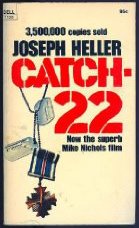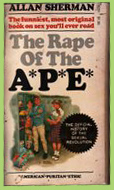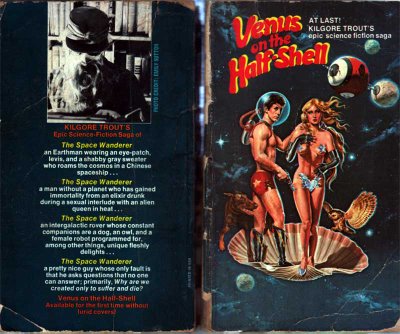To readers of Part 1 of An Uncanny Tale
I had no idea so many people would find interesting the long preamble to a 3-part series that I am primarily writing for my daughter and my 'acquired' family :-) Thank you for your appreciative comments and emails.
Many of you wrote to say I should post the next episode ASAP. Yaar, it takes time! Digging through the mind's vaults is easy ... the items really worth recalling shout out and beckon you ... but hunting through the physical jumble (and Nuzhat will be the first to state that it is one helluva jumble) of old albums and papers is a major chore. Then there's the scanning and cleaning up.
Writing a 'personal history' is also fraught with numerous problems for a non-writer such as I. Many episodes and happenings over the years have taken on a life of their own and developed into important (for me) separate strands ... and I have no idea how to get them all down into one comprehensive text. Maybe I should have taken Kamila's course at T2F, but I was broke.

 Joseph Heller solved the problem in one of my 2 most favourite books of all time, Catch-22, by throwing linearity out of the window. (The other book is Alan Sherman's The Rape of the A.P.E.. And just in case you are wondering why I'd enjoy reading some kind of perverted book about forced sex with our closely related primates, A.P.E. stands for American Puritan Ethic.)
Joseph Heller solved the problem in one of my 2 most favourite books of all time, Catch-22, by throwing linearity out of the window. (The other book is Alan Sherman's The Rape of the A.P.E.. And just in case you are wondering why I'd enjoy reading some kind of perverted book about forced sex with our closely related primates, A.P.E. stands for American Puritan Ethic.)Kurt Vonnegut developed a system I still find incomprehensible: Some of his characters flow in and out of different unconnected novels, often even cross-referencing episodes that keep me wondering about the chronological order of the writings. The oddest character in his books is Kilgore Trout, who writes cheap pulp Sci-Fi. In order to make this character more plausible than any fictitious character I have ever encountered, Vonnegut even wrote a cheap pulp Sci-Fi novel, Venus on the Half-Shell, publishing it under the name of that character. Crazy, no?

Tolstoy devised, I am told, a system that was similar to the now ubiquitous PostIts, keeping a careful record, while writing War & Peace, of where in each chapter each character figured and how that person's tale was developing. Story has it that one of the notes relating to a character who dies in an early chapter got mixed up and, so, he accidently comes back in another chapter. I can't vouch for this as I never did manage to get through the novel (it usually takes longer to read than the actual war lasted).
Blogs, with their cross-linking ability, do offer a delightful solution, but getting the Posts into a print edition, as some of you have suggested, is further complicated. However I am working on a solution.
I guess the reason some of you wanted me to post the next part quickly was to get to the end of the tale I'd labeled 'uncanny', thereby suggesting that some sort of 'twist' would follow. While I can understand the pressures of your curiosity, in order to make sense and contextualize the elements - in An Uncanny Tale / Part 2, which I will try and post a week from now - I will need to talk about 1947, skim through 1948 to 1965, hop to 1982-83, then take a long leap, directly to the end of last year.
Bear with me.







12 Comments:
This may not be the best advice, but I think that you would do well to write only for yourself or with your family and close friends as the intended readers.
:)
17 October, 2008 13:34
Well ... I'll keep writing and posting here ... and those outside the circle you mention need not read.
Bye.
;-)
17 October, 2008 16:45
Please keep posting your stories here; there are people like me who look forward to reading them. Must tell you it is always a pleasure.
17 October, 2008 18:13
@sidhusaheb, i really do not know what you mean by that comment.
@zak, your writing is so good it should be shared with the world, not just us privileged 'af' folk
19 October, 2008 02:02
I just came across some comments (on the ATP site where this post has been included by its editors) by a Mr. Ali Dada (Ref: Oct 18, 6.04PM), who - as he is entitled to - found my story complicated and boring. NP.
While I have responded to his other comments at that site, I do wish to clarify one thing here because - judging by his conclusion on one specific aspect - I did not, obviously, come across clearly enough on a particular point: My reference to 'going back' was not only about people who crossed this way going back to India but something that took place in both countries after partition. In fact the process was also ‘officially supported’ for a while on both sides of the border. Newspaper ads and other evidence, including some stats, for this are offered in Ms Zamindar’s book.
19 October, 2008 08:54
@sabizak: "af"? ye kia hota hai ji?
19 October, 2008 08:59
@anonymous: if it didn't sound presumptuous I'd have put it fully the first time round.
19 October, 2008 16:01
ZAk you write so exquisitely - reading your posts especially India 3 - remains a delightful experience. Why bother with what literary style to follow, just do it the way Zakintosh does it. Extremely well.
21 October, 2008 11:13
Sidhusaaheb: why should you decide who someone should write for and what I should or should not be reading?
Zak: If there is a God, he's reading this too. Keep writing :)
22 October, 2008 18:01
my first time visiting your blog after you left a comment on mine. i am a regular visitor on your blog now.
waiting for part 2:)
24 October, 2008 18:30
venus on the halfshell was written by philip jose farmer and not kurt vonnegut. farmer said he got permission to use kilgore trouts name from vonnegut however after the printing vonnegut denied this. vonnegut never claimed that this book was his as he thought it was inferior writing.
01 November, 2008 20:56
@anonymous re Kilgore Trout: Thanks for this info.
I also discovered, thanks to another friend, that Kilgore Trout - the Vonnegut character - was named after Theodore Sturgeon (Trout. Sturgeon. Get it?)
Sci-Fidom is so full of these in-jokes :-)
02 November, 2008 01:29
Post a Comment
Links to this post:
Create a Link
<< Home